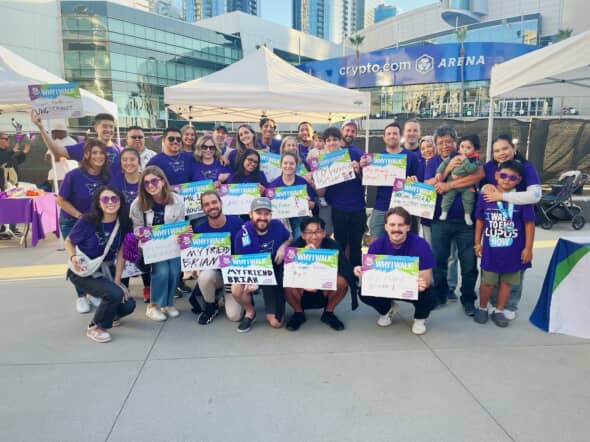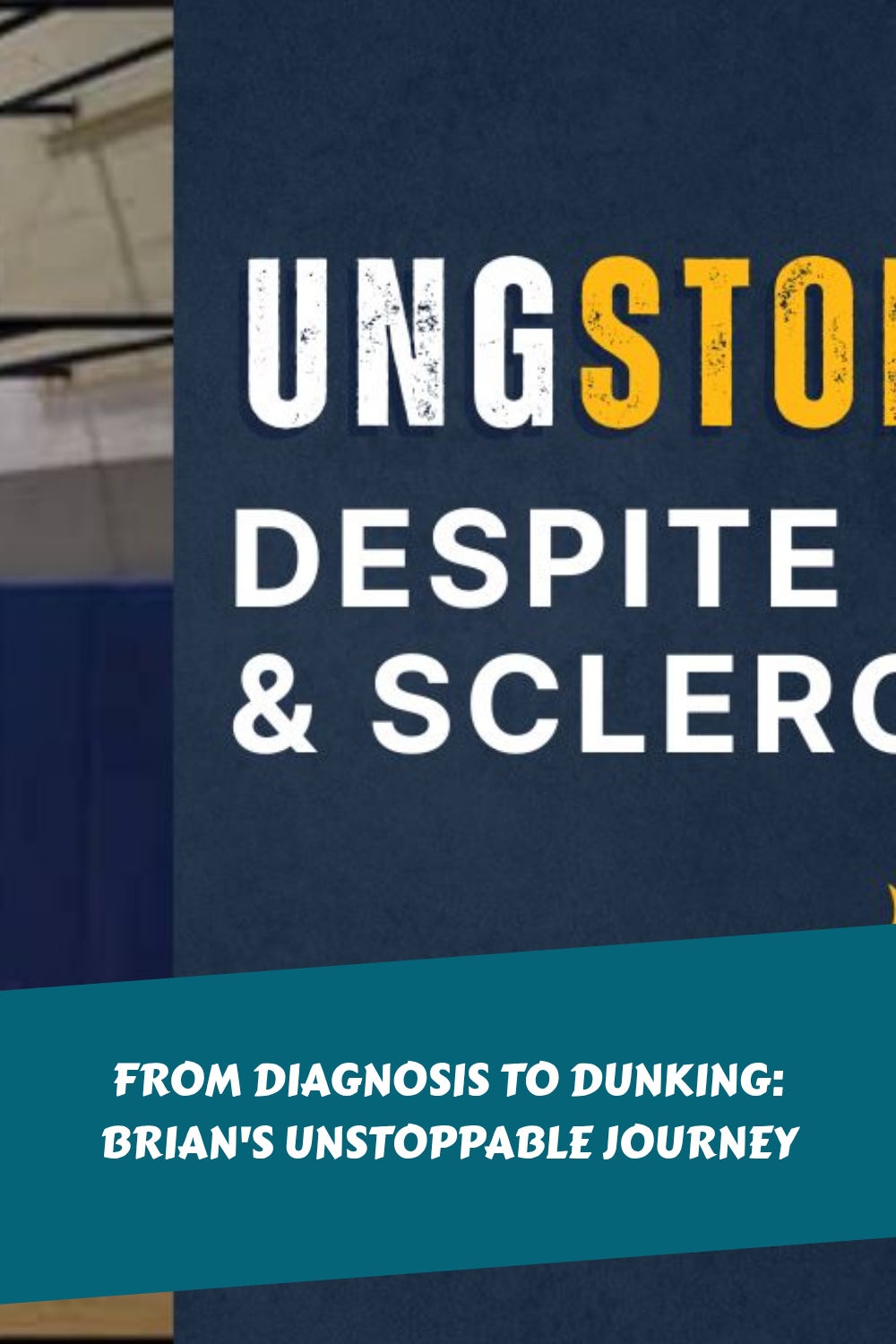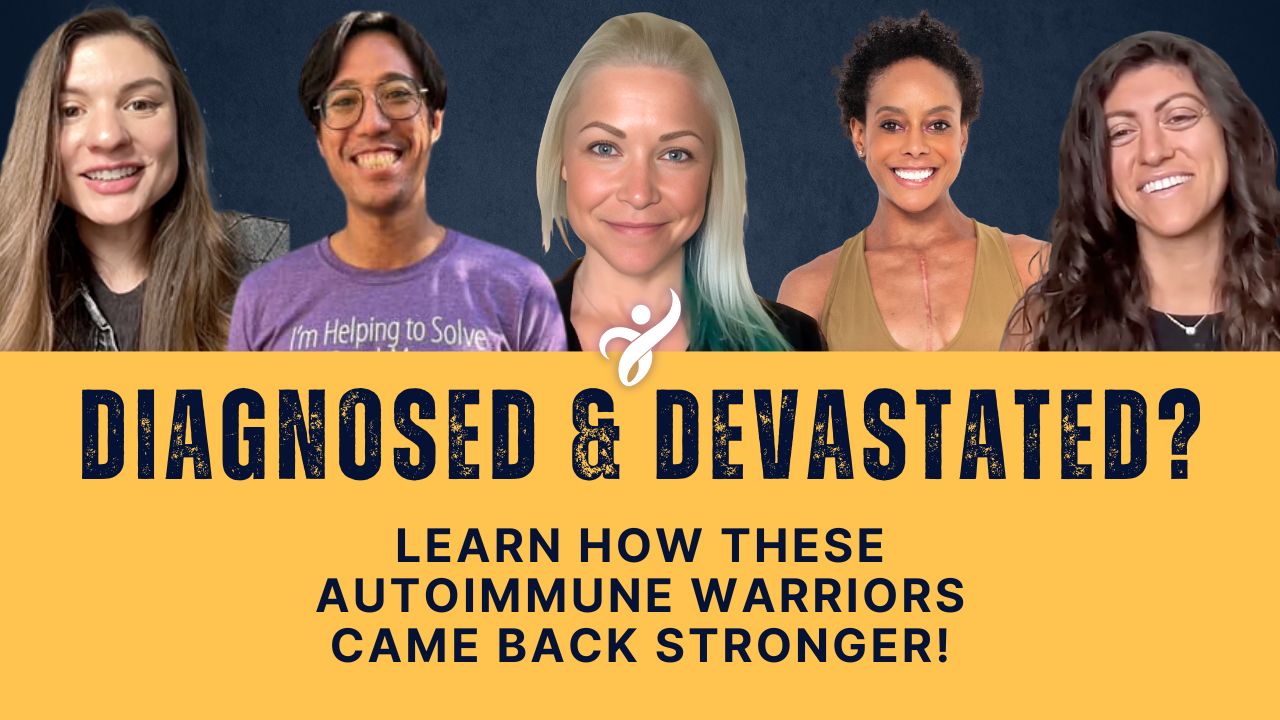Living with an autoimmune condition in your twenties and thirties hits different.
While your peers are focused on career launches, travel adventures, and social media highlights, you’re navigating a complex reality of chronic illness that most people your age can’t even comprehend.
But here’s what Brian Ung, a millennial living with both scleroderma and lupus nephritis, wants you to know: you’re stronger than you think, and you’re definitely not alone.
The Reality Check: Why Hiding Doesn’t Work
Brian’s journey started like many of ours do – with denial. Diagnosed with scleroderma at 21, fresh out of college, he kept his condition completely hidden from friends and coworkers. Sound familiar?
“I felt like I was partly in denial of it because I was like, my friends are not dealing with these things. I don’t really have to deal with it too,” Brian shared on the Invisible Strength podcast. “So I kind of just stored it away and I didn’t talk about it with my friends.”
The problem with the “fake it till you make it” approach? It doesn’t actually make anything better.
When Brian was diagnosed with lupus nephritis ten years later, he realized that isolation had only made his first diagnosis harder to handle.
The Workplace Dilemma: To Tell or Not to Tell?
Let’s address the elephant in the room that keeps us up at night: Should you tell your boss about your autoimmune condition? Brian’s approach might surprise you.
Despite the risk of potential discrimination, he’s chosen transparency.
When switching jobs, he tells hiring managers about his health conditions once he’s confident about taking the position. His reasoning?
“I’ve had cases where things will happen and I’ll need to go to the hospital or I can’t do the same work as I was doing the day before. So I really felt like giving people the heads up.”
This isn’t the right choice for everyone – workplace cultures vary dramatically, and legal protections don’t always translate to real-world safety.
But Brian’s experience highlights something important: when we educate our colleagues about our conditions before a crisis hits, we’re not dropping a bomb during our most vulnerable moments.
Redefining Masculinity in Chronic Illness
Brian’s story touches on something that’s rarely discussed openly: how chronic illness intersects with gender expectations, particularly for men.
Growing up in an Asian household where emotional discussions weren’t common, combined with typical male socialization around health, created a perfect storm of silence.
The result? Years of suffering alone when community support could have made all the difference.
For anyone struggling with these cultural and gender dynamics: your vulnerability isn’t weakness. Seeking help isn’t failure. And talking about your health challenges doesn’t diminish your strength – it reveals it.

The Game-Changer: Finding Your People
The turning point in Brian’s journey came when he connected with the lupus community. Attending support groups and joining patient advocacy efforts transformed his experience from isolation to empowerment.
“You’re not alone and you don’t have to be alone,” Brian emphasizes. “Reach out, attend a support group. The first one might not be the one for you, but try another one. Reach out to us on social media.”

This generation gets it – we’re already building communities online around everything from career pivots to mental health. Why should chronic illness be any different?
The Holistic Approach That Actually Works
Despite his pharmaceutical industry background, Brian doesn’t view medication as the complete solution. His approach combines:
- Medical treatment (working closely with specialists)
- Quality sleep (prioritizing rest despite being a light sleeper)
- Nutrition (recognizing food as medicine)
- Physical activity (adapted to current capacity)
- Mental health support (therapy and support groups)
- Community connection (patient advocacy and fundraising)
The key insight? There’s no single silver bullet, but the combination of approaches can be transformative.
Redefining Success: Small Wins Matter
When you’re dealing with an unpredictable condition, traditional goal-setting can feel impossible. Brian’s solution? Celebrate the small victories.
Can’t do your usual workout? Taking the dog out counts. Stuck in bed? Doing some light chores is still an accomplishment. The point isn’t to lower standards – it’s to recognize that progress looks different when you’re managing chronic illness.
And sometimes? You achieve things you never thought possible. Brian recently fulfilled a lifelong dream of dunking a basketball – a reminder that our conditions don’t define our limits.

The Future Looks Brighter Than You Think
For those keeping track of medical advances, Brian highlights CAR-T cell therapy as a particularly promising development.
These treatments use your own immune system to target problematic cells, and early results in autoimmune conditions are encouraging.
“The science of healthcare has never been better,” Brian notes, even while acknowledging that healthcare delivery in the US remains problematic.
For a generation that’s witnessed rapid technological advancement, this offers genuine hope for better treatments in our lifetime.
Your UNGstoppable Mindset
Brian chose “Ungstoppable” as his social media handle for a reason.
“I might have some setbacks, might have some days where I’m not feeling good or I’m in the hospital. But I won’t be stopped. This won’t be the end. I’m going to keep going, whatever that is, even if it’s just an inch a day.”
This isn’t toxic positivity – it’s realistic resilience. It’s acknowledging that some days will be harder than others while maintaining agency over your response to those challenges.

The Bottom Line
Your autoimmune condition is part of your story, but it’s not the whole story. You’re navigating challenges that most of your peers can’t imagine, and that takes incredible strength. You deserve support, community, and hope for the future.
Whether you’re newly diagnosed or years into your journey, remember: you’re not just surviving with chronic illness – you have the potential to thrive.
The key is finding the right combination of medical care, lifestyle strategies, community support, and mindset that works for you.
And if you’re feeling alone right now?
Our community has been there and understand exactly what you’re going through.
We’re ready to help you discover just how unstoppable you really are. Join our waitlist for our new group workshop to help you:
- Process your diagnosis and acknowledge the changes it brings.
- Connect with others who’ve been there through shared stories, community, and understanding.
- Rebuild your life with practical tools, energy-optimizing routines, and small, impactful changes.
Dance on, friends,
Karin
P.S. If you live with an autoimmune condition or love someone who does, know this: You’re not alone. Get in touch with us – we’d love to connect!
Disclaimer: These tools do not replace the advice of a health care professional; if you have concerns about your health, please consult a health care professional.

 Karin W
Karin W 






